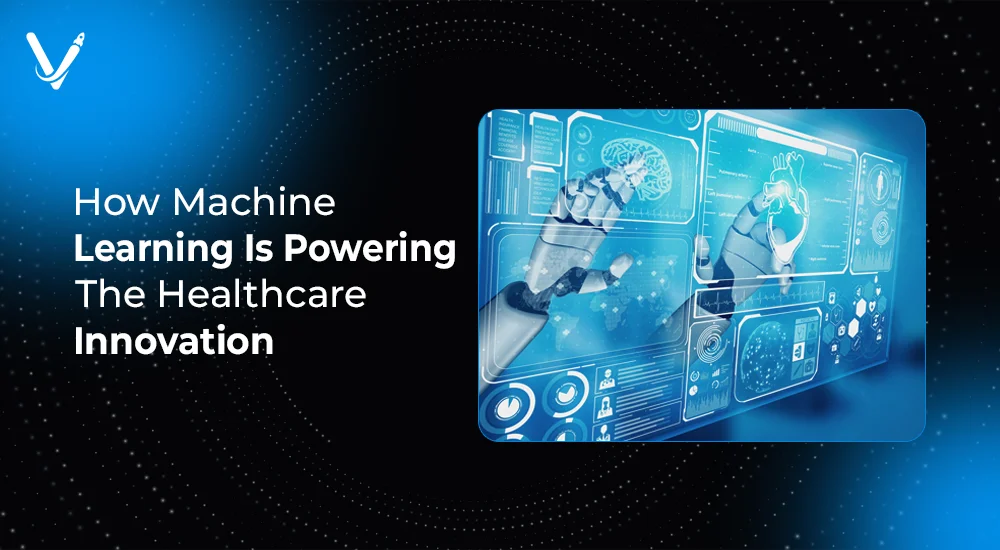How Machine Learning Is Powering the Healthcare Innovation


- May 13, 2025
Machine learning is transforming various industries, and healthcare is no exception. From predicting disease outbreaks to enhancing diagnostic accuracy, machine learning (ML) is redefining how healthcare providers deliver patient care. This article delves into how machine learning is revolutionizing healthcare, exploring real-world applications, benefits, and the challenges that come with implementing ML in medical settings.
Healthcare is undergoing a technological revolution, and machine learning is at the forefront of this transformation. As hospitals and clinics collect vast amounts of patient data, ML systems are being developed to analyze and extract insights from this data, enabling more accurate diagnoses and personalized treatments.
Machine learning is a subset of artificial intelligence that involves training algorithms to learn patterns from data and make data-driven decisions. In healthcare, ML models are being leveraged to analyze complex datasets, enabling clinicians to make more accurate diagnoses, predict patient outcomes, and recommend personalized treatments. This paradigm shift is propelling healthcare into a new era of precision medicine and predictive analytics.
The impact of machine learning in healthcare is profound, with applications ranging from diagnostics to drug discovery. Let's explore how ML is being integrated across various medical domains to optimize patient outcomes and streamline clinical processes.
1. Diagnostic Imaging and Radiology
Machine learning algorithms are enhancing the accuracy of medical imaging by detecting anomalies that might be missed by the human eye. For example, ML models can analyze X-rays, MRIs, and CT scans to identify early signs of diseases like cancer, pneumonia, and neurological disorders. Studies have shown that ML-powered diagnostic systems can match or even surpass human radiologists in detecting abnormalities, leading to faster and more accurate diagnoses.
2. Predictive Analytics for Patient Care
Predictive analytics powered by machine learning is enabling healthcare providers to foresee patient health trends and intervene before conditions worsen. ML algorithms analyze patient history, lab results, and lifestyle data to predict potential health risks. For instance, predictive models can forecast the likelihood of readmissions, allowing hospitals to implement targeted interventions to reduce unnecessary visits.
3. Personalized Medicine
Personalized medicine leverages ML to tailor treatment plans based on a patient’s genetic makeup, medical history, and current health status. By analyzing vast datasets, ML models can identify which treatments are likely to be most effective for specific patient profiles. This approach not only improves patient outcomes but also minimizes adverse effects by customizing treatment protocols.
4. Drug Discovery and Development
Drug discovery is a costly and time-consuming process, but ML is accelerating the development of new therapies. Machine learning algorithms can analyze chemical compounds, predict molecular interactions, and identify potential drug candidates faster than traditional methods. This has led to significant breakthroughs in identifying potential treatments for conditions such as Alzheimer’s, diabetes, and rare genetic disorders.
5. Remote Patient Monitoring and Telemedicine
ML-powered wearable devices and telemedicine platforms are enabling remote patient monitoring, making healthcare more accessible to underserved populations. Wearables equipped with ML algorithms can monitor vital signs, detect irregularities, and alert healthcare providers in real time. This real-time monitoring helps in managing chronic conditions like heart disease, diabetes, and hypertension more effectively.
6. Natural Language Processing (NLP) in Healthcare Records
NLP, a branch of machine learning, is being used to extract valuable insights from unstructured healthcare data such as patient notes, discharge summaries, and lab reports. By analyzing text data, NLP algorithms can identify patterns, detect potential medical errors, and streamline administrative processes, reducing the workload for healthcare providers.
Machine learning is transforming healthcare in numerous ways, from improving diagnostic accuracy to enhancing patient care. By leveraging data-driven insights, healthcare providers can make more informed decisions, ultimately leading to better patient outcomes and cost savings.
While the potential of machine learning in healthcare is immense, several challenges and ethical considerations must be addressed. From data privacy concerns to algorithmic biases, the path to integrating ML effectively in healthcare is complex and requires careful planning and oversight.
Implementing machine learning in healthcare is not without challenges. Data privacy concerns, algorithmic bias, and the need for regulatory compliance must be addressed to ensure the safe and effective deployment of ML systems. Additionally, the accuracy of ML models depends on the quality and diversity of training data, making data integrity a critical factor in healthcare applications.
Machine learning is no longer a futuristic concept; it is actively reshaping the healthcare landscape. By enhancing diagnostic capabilities, enabling personalized treatment plans, and streamlining patient care, ML is revolutionizing the way medical services are delivered. However, as the adoption of ML continues to grow, addressing ethical concerns and ensuring data integrity will be crucial for its successful implementation.
Machine learning is transforming healthcare by enhancing diagnostic accuracy, enabling personalized treatment plans, and streamlining patient care. While challenges remain, the potential for ML to revolutionize the healthcare industry is undeniable. As technology advances, the integration of ML into healthcare systems will continue to grow, fostering a new era of data-driven medicine. Get in touch with our experts to get started.
Copyright © 2026 Vasundhara Infotech. All Rights Reserved.
